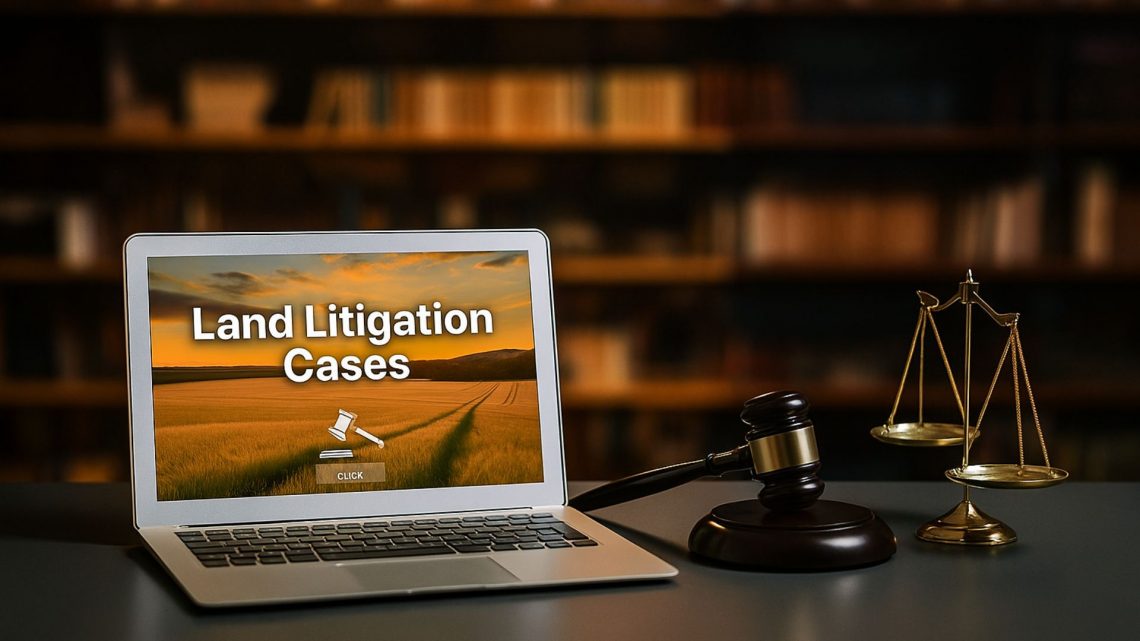
Ensuring Compliance When Acquiring Land & Handling Land Litigation Cases
Acquiring land is more than a financial transaction—it requires navigating complex legal, regulatory, and administrative processes. Organizations today are increasingly turning to land management systems to streamline compliance, track documentation, and minimize disputes.
This blog explores two critical aspects of real estate and property management: ensuring compliance during land acquisition and effectively handling land litigation cases.
Ensuring Compliance When Acquiring Land
Compliance failures during land acquisition can lead to ownership disputes, penalties, or project delays. A modern land management system can help automate checks, store records, and provide real-time compliance tracking.
1. Verify Title and Ownership
- Use land management software to maintain digital title records.
- Access historical deed information to ensure a clean title.
2. Check Regulatory Approvals
- Visualization of zoning maps, land-use maps and tracking of environmental compliance details.
- Land management systems can track required permits and alert stakeholders of pending approvals.
3. Draft Strong Contracts
- Record agreements digitally for easy access and compliance monitoring.
- Use software-based audit trails to track amendments or obligations.
4. Ensure Tax & Duty Compliance
- Pay stamp duty and registration fees on time.
- With some land management software, property tax dues and payment history can be automated and tracked.
5. Address Stakeholder & Community Rights
- Document easements, tenancy, and community rights digitally.
- Engage with stakeholders proactively to avoid disputes.
How to Handle Land Litigation Cases Effectively
Even with robust compliance, disputes may arise over boundaries, ownership, or usage. A land management system provides centralized access to records, which can make litigation management far more efficient.
1. Early Case Assessment
- Property lawyers can quickly assess ownership validity using digital records from land management software.
- Automated reports provide insights into encumbrances, tax dues, or historical disputes.
2. Explore Alternative Dispute Resolution (ADR)
- Mediation and arbitration can be accelerated when both parties rely on accurate, centralized land records.
- Land litigation becomes less adversarial when backed by transparent documentation.
3. Effective Court Strategy
- Ensure timely filings and accurate evidence submission.
- With GIS based land management systems, certified copies of deeds, maps, and tax receipts can be accessed instantly.
4. Gather Strong Evidence
- Use digitized property records, survey maps, and revenue data stored in the software.
- Maintain audit trails for ownership history and compliance.
5. Secure Long-Term Resolution
- Once resolved, update digital records in the land management system to prevent future disputes.
- Integrate court outcomes into the central database for permanent ownership clarity.
Recommended Read:
https://www.cyberswift.com/blog/court-case-management-module-on-lams/
Conclusion
Land remains one of the most valuable and contested assets. By combining land acquisition compliance practices with the power of land management software and systems, organizations can ensure due diligence, prevent disputes, and manage litigation effectively.
Whether you’re a government body, enterprise, or individual investor, adopting a digital land management solution can help safeguard ownership, streamline compliance, and support long-term asset security.


Darshana Mukherjee is a Senior Consultant in Business Development with over 11 years of experience in sales, primarily focused on the Geospatial IT industry. Her expertise lies in driving business growth through strategic partnerships, client engagement, and delivering solutions. She combines her technical knowledge with business acumen to contribute effectively to organizational success.






One Comment
Wan AI
This blog does a great job highlighting how land acquisition involves much more than just buying property—it’s the legal and regulatory details that can make or break a project. I especially agree that proactively verifying ownership and tracking stakeholder rights digitally can save organizations from serious disputes down the line.